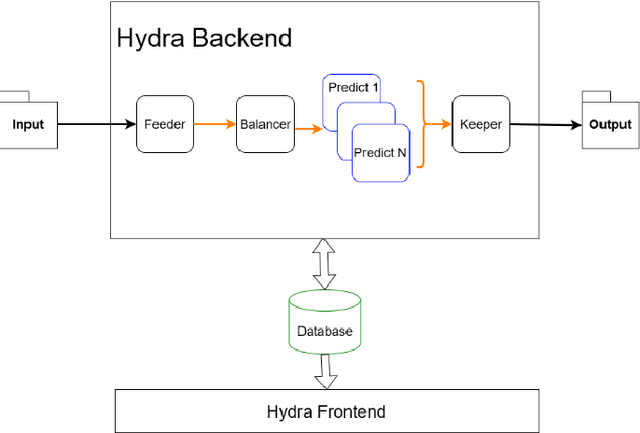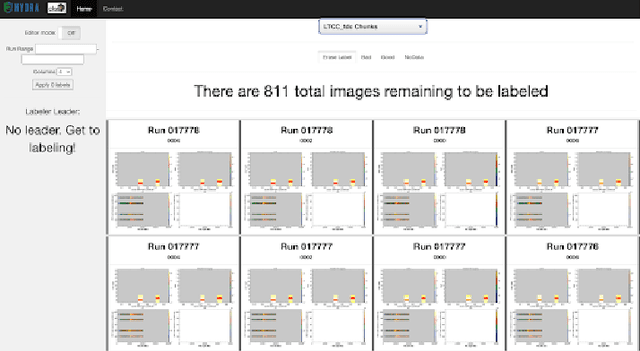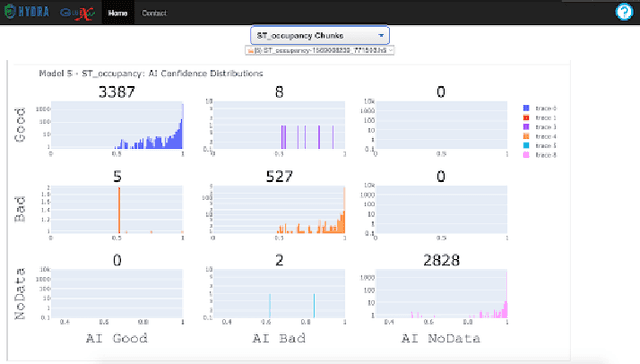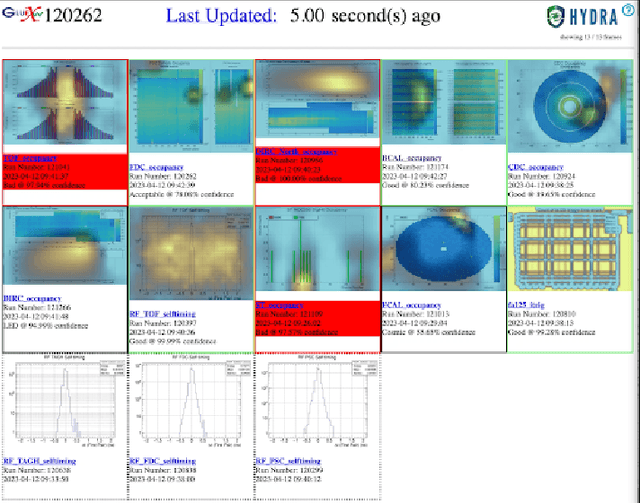Torri Jeske
Hydra: Computer Vision for Data Quality Monitoring
Mar 01, 2024



Abstract:Hydra is a system which utilizes computer vision to perform near real time data quality management, initially developed for Hall-D in 2019. Since then, it has been deployed across all experimental halls at Jefferson Lab, with the CLAS12 collaboration in Hall-B being the first outside of GlueX to fully utilize Hydra. The system comprises back end processes that manage the models, their inferences, and the data flow. The front-end components, accessible via web pages, allow detector experts and shift crews to view and interact with the system. This talk will give an overview of the Hydra system as well as highlight significant developments in Hydra's feature set, acute challenges with operating Hydra in all halls, and lessons learned along the way.
Uncertainty aware anomaly detection to predict errant beam pulses in the SNS accelerator
Oct 22, 2021



Abstract:High-power particle accelerators are complex machines with thousands of pieces of equipmentthat are frequently running at the cutting edge of technology. In order to improve the day-to-dayoperations and maximize the delivery of the science, new analytical techniques are being exploredfor anomaly detection, classification, and prognostications. As such, we describe the applicationof an uncertainty aware Machine Learning method, the Siamese neural network model, to predictupcoming errant beam pulses using the data from a single monitoring device. By predicting theupcoming failure, we can stop the accelerator before damage occurs. We describe the acceleratoroperation, related Machine Learning research, the prediction performance required to abort beamwhile maintaining operations, the monitoring device and its data, and the Siamese method andits results. These results show that the researched method can be applied to improve acceleratoroperations.
 Add to Chrome
Add to Chrome Add to Firefox
Add to Firefox Add to Edge
Add to Edge